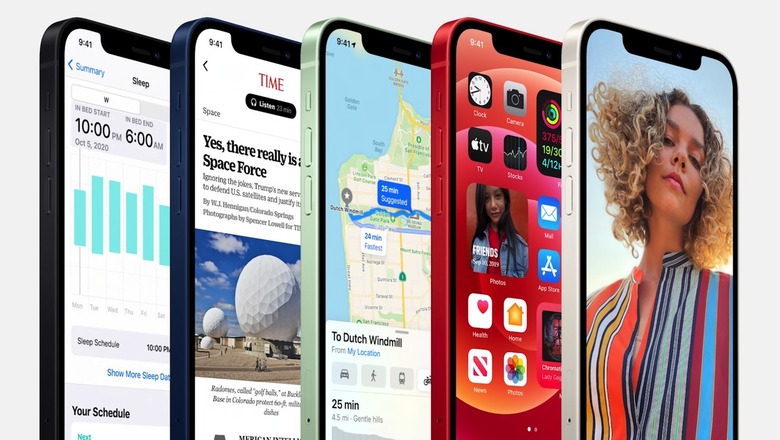Two-Thirds Of iPhone Users Plan To Block Apps From Tracking Them
The iOS 14.5 update should drop in the very near future, as Apple has tested the software extensively via several beta releases in the past few weeks. The new release should add several new features, including the highly-anticipated App Tracking Transparency (ATT) privacy feature that will force all app developers to ask for permission before tracking users online.
The move sparked a protest from Facebook, one of the companies that makes most of its money from online ads. The ability to track users is essential for serving personalized ads and monitoring the performance of those campaigns. Facebook has claimed that Apple's new privacy features will hurt the free web and small businesses, launching its own ad campaign asking users to continue to allow it to track them once iOS 14.5 rolls out.
Apple has repeatedly explained that the new privacy features will not block developers from tracking users. But ATT forces apps to ask for permission and to explain the purpose of that data collection. A new survey indicates that more than two-thirds of iPhone users will block ad tracking once apps start asking.
The survey comes from AppsFlyer, a mobile marketing company and attribution company that analyzed some 300 apps across 2,000 devices. According to AdWeek, the data indicates that the median opt-in rate would be 32%, which means 68% of users would not allow apps to track them.
The percentages might vary depending on the app. Services with higher consumer affinity would get higher opt-ins, but even those would hover around 40%, meaning that users will likely embrace Apple's new privacy feature. Other apps might be impacted more significantly, with dating app Bumble disclosing in an S-1 filing that it expects opt-ins between 0-20%.
App Tracking Transparency prompt coming to iPhone in iOS 14.5.
Users who opt out of tracking would prevent developers from harnessing their IDFAs, which are the unique identifiers that allow tracking. This would prevent ad agencies from measuring the performance of their online ads. Advertisers would be unable to tell what customers saw which ads.
Digital ad company Trade Desk said that 10% of the 12 million ad opportunities per second on its platform are tied to IDFA. If opt-out rates are high, publishers can expect a 50% decline of in-app CPM or cost per thousand impressions. CPM drops would be followed by a decline in cost-per-acquisition, AdWeek explains.
Building other trackers that would violate Apple's rules could lead to Apple rejecting app updates. The company has confirmed as much recently when some apps using third-party trackers had their updates rejected. Developers would still have to ask for permission to track users.
While the general consensus seems to be that many people will reject tracking, given the opportunity, advertisers still have no idea what ATT will do to the in-app advertising business on iPhone and iPad.
Facebook could take a revenue hit of 7%, according to projections from analyst Eric Seufert. A report from Advertiser Perceptions says that 58% of advertisers expect to move some of most of their budgets out of Apple's ecosystem and into Android and connected TVs.
